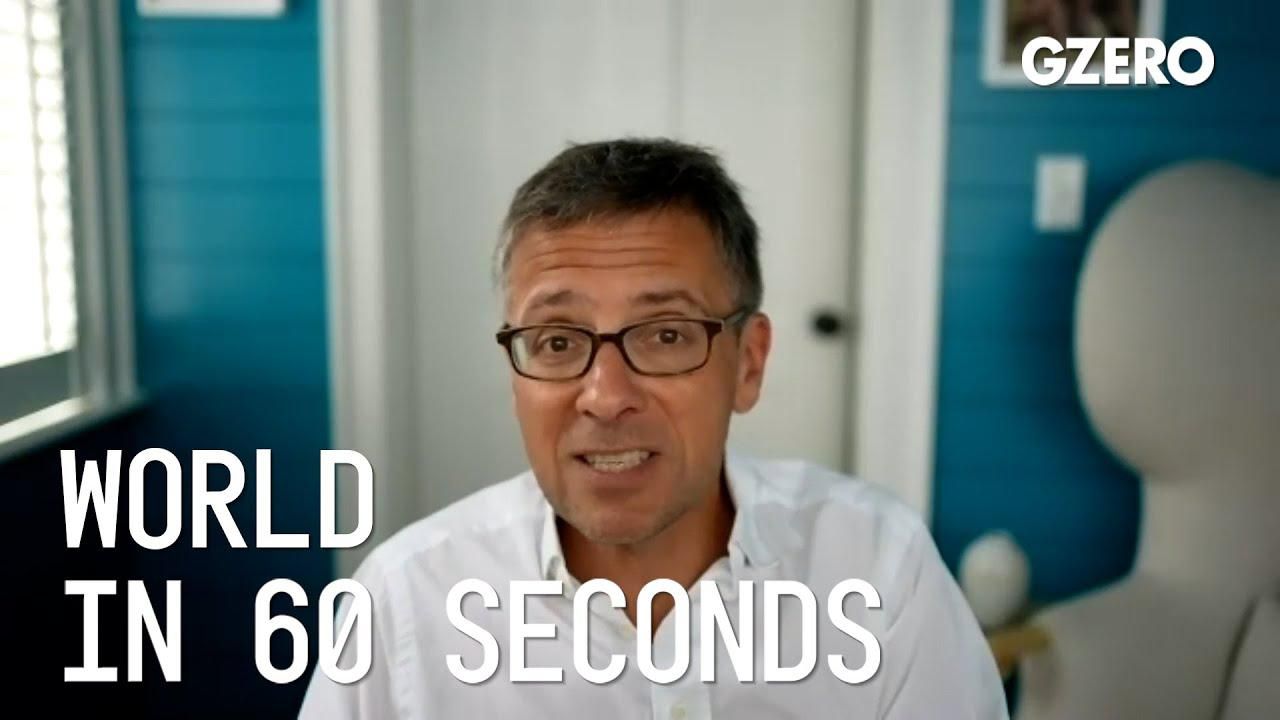Ian Bremmer shares his insights on global politics this week with a look at the deteriorating human rights situation in Belarus, Delta variant woes, and Lebanon one year after the Beirut blast.
An Olympian refuses to return home to Belarus and an anti-Lukashenko activist has been found dead in Ukraine. What's going on?
Yeah. That anti-Lukashenko activist was found hanged in a park in Kiev. Once again, not exactly likely a suicide. These anti-Lukashenko activists have a way of turning up injured or dead. It's a horrible regime. Their friends are limited largely to the Russians. That's about it. The economic pressure is growing from Europe, from the United States, very coordinated. But the problem is a very hard to do much to Lukashenko when he has not only support of his military, but also the support of most of the workers in the country who aren't prepared to strike because they want to ensure they still have jobs. I expect this is going to continue, but human rights abuses are stacking up. It is nice to see that the Americans and the Europeans are coordinating policy as well as they have been.
How has Delta variant added to the COVAX woes?
Well, we've seen a lot more cases. I mean Florida, for example, right now, highest level of cases since this pandemic has started. Hospitalizations too. But not deaths. Death numbers across the country are still comparatively very low. That's also true in Europe. Why is that? That's because even though vaccines overall are not where they need to be in the United States, the people that are most vulnerable to dying, the seriously elderly, those with pre-existing conditions are also among the most likely, sensibly, to get vaccines. And so it was a consequence. Death numbers are still mercifully comparatively low, and I suspect they're going to stay low. Having said that, we don't know much about long COVID. We do know about 50% of the people that get symptoms have those symptoms persist. The healthcare costs of that, the psychological costs of that, the reality of the quality of life, it's deteriorating for a much longer period of time. That's what we worry about the most. The thing I'm most worried about globally is China, where they're locking down big cities in part because they have no tolerance for the pandemic to grow in China. But also because their vaccines really don't work against Delta variant. That could slow down the second largest economy in the world. Watch that over the next few months.
A year after the Beirut blast, what has changed in Lebanon? One of the biggest non-nuclear blasts in global history.
Answer is very little has changed. The investigation is going nowhere. One of the few things that various factions around the government can agree with is that they don't want to be tried for corruption by independent investigators so they've been slow rolling it. Economic collapse, not much international support. Emmanuel Macron, you'll remember the French president, went down said we're going to help these people. There's been very little international aid and no new conference trying to raise that support for Lebanon. They are close to becoming a failed state and maybe not a surprise given how bad both COVID and the financial crisis has hit a country that was already among the most poorly governed in the region and the world.
More For You
The Supreme Court has struck down President Trump’s use of the national emergency clause to impose sweeping tariffs around the world. In this Quick Take, Ian Bremmer explains why this ruling was predictable and why it’s a major setback for Trump’s trade strategy.
Most Popular
Think you know what's going on around the world? Here's your chance to prove it.
2.5 million: The population of Gabon who can no longer get onto certain social media platforms, like YouTube and TikTok, after the government suspended access on Tuesday.
